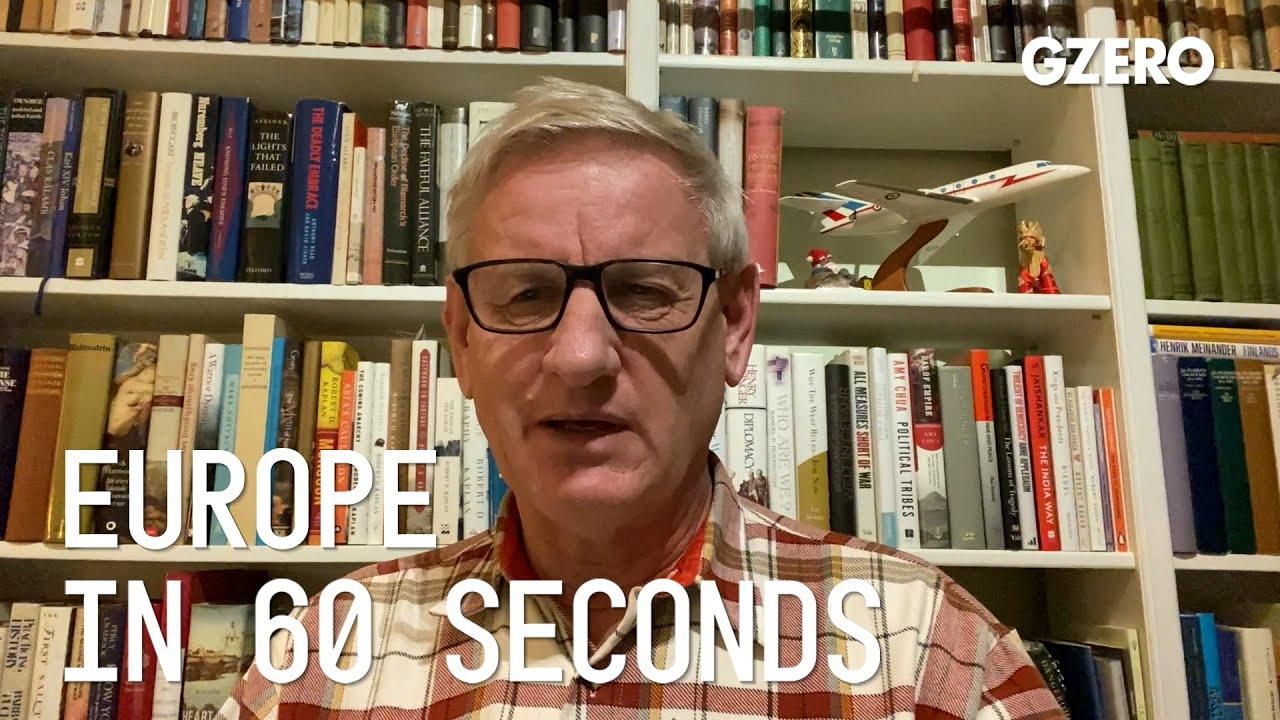GZERO Europe
EU 2022: COVID waves, Russia & Ukraine, and French presidential elections

EU 2022: COVID, Russia & Ukraine, and French Presidential Elections | Europe In :60 | GZERO Media

Carl Bildt, former Prime Minister and Foreign Minister of Sweden, shares his perspective from Europe:
Another year of the pandemic has passed. We are in a new wave in Europe, and that is dominating quite a lot of the politics of different countries.
But as we are looking ahead towards the next year, what do we see there?
We hope the pandemic will gradually fade away, but that is by no means certain. We do face a lot of worries of what's happening in the east of Europe, the intention of Russia. Will Putin really launch a major invasion of Ukraine, or a minor military operation? Or it’s just sheer blackmail under military pressure? I think the first weeks, the first months of next year will be decisive in that particular respect.
And then, the French presidential elections and a lot of atmospherics associated with that, and the French have the presidency of the European Union to the first half of the year. You will hear a lot of that, and a lot of discussions of what to do with the economic policy. What I call the rescue from the rescue. Can we get out of all of these aid packages and subsidies and exemptions for the normal rules and get back to a more competitive Europe in a global economy that is changing very fast?
So, certainly, no absence of big issues as we are preparing to celebrate the new year in Europe.
With the US leading production and China driving new reactor development, Bank of America breaks down the who, what, where, when, and why behind nuclear’s return. Stay ahead of global energy trends with Bank of America Institute.
Chris, an Army veteran, started his Walmart journey over 25 years ago as an hourly associate. Today, he manages a Distribution Center and serves as a mentor, helping others navigate their own paths to success. At Walmart, associates have the opportunity to take advantage of the pathways, perks, and pay that come with the job — with or without a college degree. In fact, more than 75% of Walmart management started as hourly associates. Learn more about how over 130,000 associates were promoted into roles of greater responsibility and higher pay in FY25.
Last week, at the Munich Security Conference, a group of global technology providers, including Microsoft, announced the Trusted Tech Alliance — committed to shared, verifiable principles for trusted, transparent, and resilient technology across borders. At a moment of economic volatility and zero-sum technological competition, countries and customers are demanding greater accountability from technology providers. The Alliance addresses this by bringing together companies from across Africa, Asia, Europe, and North America around shared commitments: transparent governance, secure development practices, supply chain oversight, open digital ecosystem, and respect for the rule of law — ensuring the benefits of emerging technologies strengthen public trust while driving job creation and economic growth. Explore the Trusted Tech Alliance here.